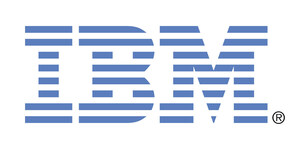YORKTOWN HEIGHTS, N.Y., Oct. 2, 2013 /PRNewswire/ -- IBM (NYSE: IBM) today announced a collaborative research initiative with four leading universities to advance the development and deployment of cognitive computing systems – systems like IBM Watson that can learn, reason and help human experts make complex decisions involving extraordinary volumes of fast-moving data.
(Logo: http://photos.prnewswire.com/prnh/20090416/IBMLOGO )
Faculty at the four schools -- Carnegie Mellon University, the Massachusetts Institute of Technology, New York University and Rensselaer Polytechnic Institute -- will study enabling technologies and methods for building a new class of systems that better enable people to interact with Big Data in what IBM has identified as a new era of computing.
"IBM has demonstrated with Watson that cognitive computing is real and delivering value today," said Zachary Lemnios, vice president of strategy for IBM Research. "It is already starting to transform the ways clients navigate big data and is creating new insights in healthcare, how research can be conducted and how companies can support their customers. But much additional research is needed to identify the systems, architectures and process technologies to support a new computing model that enables systems and people to work together across any domain of expertise."
The research initiative was announced at a colloquium held at the Thomas J. Watson Research Center attended by nearly 200 leading academics, IBM clients and IBM researchers to begin a dialog that deepens the understanding of cognitive systems and identifies additional areas of research to pursue. These initial university collaborators will help lay the foundation for a Cognitive Systems Institute that IBM envisions will comprise universities, research institutes and IBM clients.
The initial research topics for exploration announced today are:
- MIT - How socio-technical tools and applications can boost the collective performance of moderate-sized groups of humans engaged in collaborative tasks such as decision making.
- RPI - How advances in processing power, data availability, and algorithmic techniques can enable the practical application of a variety of artificial intelligence techniques.
- CMU - How systems should be architected to support intelligent, natural interaction with all kinds of information in support of complex human tasks.
- NYU - How deep learning is impacting many areas of science where automated pattern recognition is essential.
"I believe that cognitive systems technologies will make it possible to connect people and computers in new ways so that--collectively--they can act more intelligently than any person, group, or computer has ever done before," said Thomas Malone, Director of the MIT Center for Collective Intelligence and the Patrick J. McGovern Professor of Management, MIT Sloan School of Management. "I am excited to be working with IBM and these other universities to understand better how to harness these new forms of collective intelligence."
"With the explosion of information and the advances in semantic data tools, we are excited to participate in this collaboration to bring the best of human and computing capabilities together in this new era of cognitive systems," said Selmer Bringsjord, Professor and Head of the Department of Cognitive Science at Rensselaer Polytechnic Institute.
"The cost-effective creation of cognitive systems for complex analytic tasks will require fundamental advances in the rapid construction, optimization, and constant adaptation of large ensembles of analytic components. Personalized information agents will rapidly adapt and optimize their task performance based on direct interaction with the end user. I am excited that CMU will be teaming with IBM, MIT, RPI and NYU to explore the future of software architecture for cognitive systems," said Eric Nyberg, Professor at the Language Technologies Institute at Carnegie Mellon University.
"NYU's research into neural networks has the potential to revolutionize how we think about machines and the role they play in our everyday lives. NYU has a long history of helping create some of the work's most important technological breakthroughs, so we are honored to be among the universities collaborating on this research initiative into cognitive computing systems," said Paul Horn, Senior Vice Provost for Research at New York University. "As a research university at the forefront of technology and innovation, we look forward to working with IBM and our fellow institutions to promote basic research into the next era of computing."
For more information, please visit www.research.ibm.com/cognitive-computing/.
Media Contact:
Christine Vu
IBM Research
[email protected]
914-945-2755
SOURCE IBM
WANT YOUR COMPANY'S NEWS FEATURED ON PRNEWSWIRE.COM?
Newsrooms &
Influencers
Digital Media
Outlets
Journalists
Opted In




Share this article